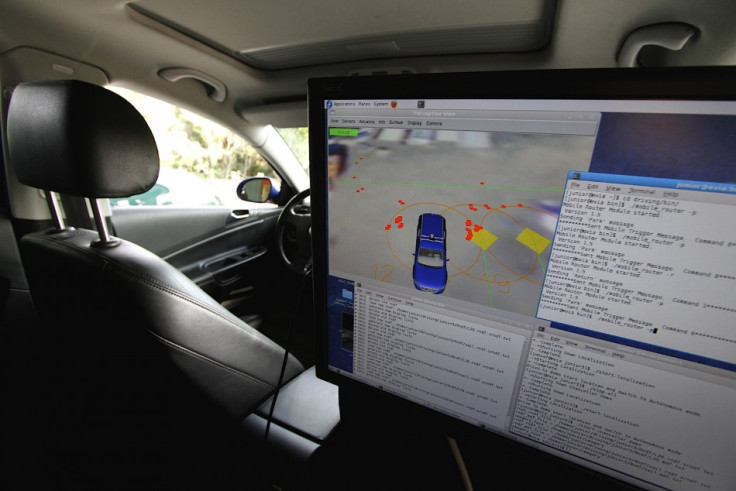Driverless Cars Could be on UK Roads 'in 20 Years' [VIDEO]

Driverless computer controlled cars could be on UK roads in two decades, after a government minister pushed for a change in the law.
David Willetts, the minister for universities and science, has successfully lobbied the Department for Transport to allow Oxford University scientists to test their prototype RobotCar on public roads.
Willetts travelled in a Google-developed driverless car on a visit to Palo Alto, California, last year, and returned to the UK determined not to let red tape hinder the development of a rival UK model.
"In California they have a regulatory regime in place that permits these cars to operate on public roads. The Department for Transport is now going to introduce the regulatory regime that makes that possible here," Willetts told the Sunday Times.
Nevada and Florida have also passed laws allowing the cars to be test driven on local roads.
The RobotCar uses a modified Nissan Leaf electric motor and a combination of cameras and computers to steer and navigate, and its developers hope it will be cheaper for consumers than the Google model. So far tests have been limited to Begbroke Science Park.
Toyota, Volkswagen and Audi are all developing self-driving models.
"Driverless cars will happen, they are an inevitability; much of the technology is already in existing vehicles," said Dr Malcolm McCulloch of Oxford University's department of engineering science, which is behind the RobotCar project.
"The next stage is where the car drives a route it has navigated before under various conditions, and has learnt; that could be deployable in five years. The second stage is where the car navigates a route that has not been driven before, using shared vehicle data. This is probably 10 to 15 years away."
Politicians, scientists and technology experts are excited by the enormous potential of driverless cars to make roads safer and energy consumption more efficient.
So far, Google says that no accidents have been caused by their driverless cars.
Insurance experts are already debating where liability would fall in an accident between two driverless vehicles.
See the Oxford driverless car in action in the YouTube clip, below.
© Copyright IBTimes 2025. All rights reserved.




















